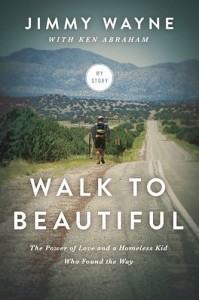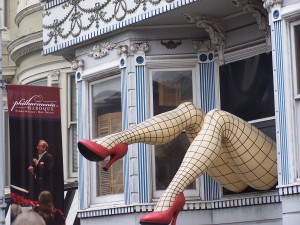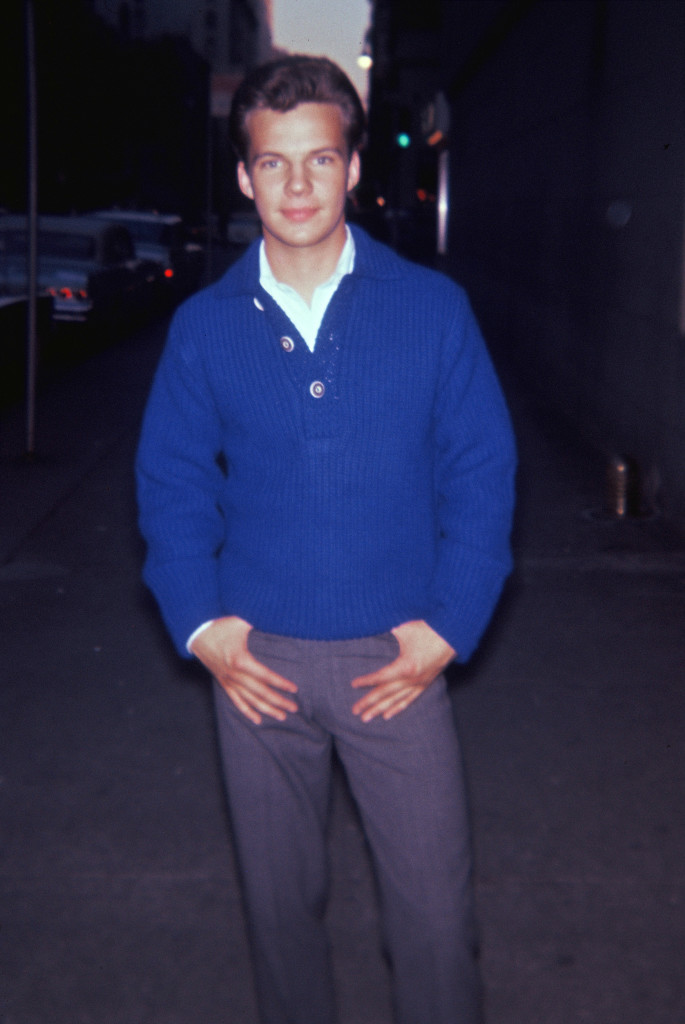
I’ve loved Bobby Vee’s music for as long as I can remember. If I had written that opening sentence without the word “music”, and maybe referred to his dreamy hazel eyes, it could just as likely have appeared in an article from 16 or Teen Screen in 1961 when Bobby was firmly in teen idol territory. What started for me as an affinity with his early ‘60’s songs like “The Night Has a Thousand Eyes” and “Rubber Ball”, both mainstays on Saturday Night Jukebox-type radio shows when I was a kid in the ‘80s-‘90s, grew over the years and he is probably my favourite male singer who started a career at that time. I emphasise started because while he may be best known for the almost 40 Billboard Hot 100 chart hits that he had from 1959-1970, he never really stopped recording and performing. Along the way, Bobby became a legend.
Another Bob was actually the impetus for my writing about Bobby Vee. Well, not technically a Bob. Bob Evans is the name singer-songwriter Kevin Mitchell uses for his solo work. But I’m sure Mr. Vee will forgive me. After all, he was born Robert Velline, just as Italian-Americans Frankie Avalon and Bobby Rydell weren’t born with those names; and Fabian and Dion did once have surnames! In Bobby Vee’s case his lineage is Scandinavian (Norwegian on dad’s side, Finnish on mom’s). I heard the song “Sitting in the Waiting Room” performed live at Kevin/Bob’s April 2013 Adelaide show, and again shortly after on the beautiful and lush album from which it came, Familiar Stranger. In “Sitting in the Waiting Room”, Kevin sets the scene of a doctor’s office where a man and woman, most probably a couple, are passing time waiting to be seen. He is watching TV and she is reading magazines that, while he doesn’t say it, I imagine being out-of-date and well worn. The female protagonist is likely picturing all the sick people who have read those magazines and just knows that she’s going to catch something. Maybe that’s just me. It is a scene we are all familiar with, one where those nursing colds, sporting injuries or just needing general check-ups sit quietly alongside those awaiting potentially life-changing news. The problem of this pair doesn’t seem to fit the first category, and it may or may not fit the second. They are scared and apprehensive; as he puts it, “And I don’t have the words to make it right”.
Eventually they are with the doctor, and while she talks, he is silent, all “helplessness and fear”. The couple eventually emerge from the office and exit back through the waiting room. He comes to realise it is not words she needs, but someone to be there in times like this when you have no choice but to “let the unknown forces take control”. We don’t know the outcome of their visit: “Walking out the waiting room/My eyes are white, the skies still blue/Now there’s other stuff to do”. Life goes on; even it has seemingly changed in an instant. Besides the big things to think about, there are still the little things.
I thought a lot about this song as I prepared to listen to an album by Bobby Vee, The Adobe Sessions, released in February 2014. Yes, it’s September 2015 and this is long overdue. I had heard about the album, but for some reason I had missed a post on Bobby’s blog from April 2012. In the letter from Bobby and his family, he began, “As my buddy Fabian says, getting old is not for the meek. I think he may be right. A little over a year ago I was diagnosed with the mild stages of Alzheimer’s disease”.
I don’t really know the Vellines, although we’ve had some interaction online and I’ve found them to always be friendly. I was even able to send Bobby a card. But it was the image Kevin Mitchell painted that came to mind when I read Mr. Vee’s letter to his friends and fans. Later Tommy Vee, Bobby’s son, said, “We were all in the room when they gave the diagnosis and it was a devastating thing to sit and hear that”. Bobby comes from a generation of musicians that are much more accessible to their fans, but it would have been understandable if the Vellines chose not to disclose the diagnosis. Son Jeff wrote in an article for the magazine Care ADvantage in spring 2014, “For 50+ years, Dad had bared his heart on a stage night after night: ‘Here I am; this is what you get’. He ultimately reminded us of this when he chose to go public with his diagnosis of Alzheimer’s disease in 2012: ‘Look, here I am, this is still me… I am here!’” Jeff continued that his father “was resolved about going public—he knew what was best. It was an act of grace and courage”. And, in his father’s words, “You work with what you got”.
I have had very little direct experience of dementia. I think those of us who haven’t cannot really understand, although we can of course empathise at some very general level. Most important, though, we can listen to those who are experts by experience: the families of those with dementia and, perhaps more importantly, the people with dementia themselves. Since being diagnosed, Bobby himself said in his letter, “This past year has truly been life taking its own course without words that can describe the mystery and conflict that none of us can know. So without a song or a script I am stepping onto a stage that we all share: The mystery of life”.
When Bobby received his diagnosis, the family set out on a road trip from their home in Minnesota to Tucson where Bobby and his wife Karen had built a hacienda. It was father, mother, sons and daughter, as well as the grandchildren. As Bobby wrote, “Together we explored the depths of our reality… the depths of my reality. With very few words, no solutions and a lot of heart, we did what we do. We shared time. We shared laughter, tears, stories, meals and music. We shared thousands of miles of hi-way as familiar to us as the pillows on our beds. As if nothing had changed, as if everything had changed… simultaneously”. From the garage, Bobby described in the album liner notes, “mud adobe walls still radiating warmth from the days’ desert sun”, the Vellines did what they had always done: they made music. As Bobby wrote “We made music every day for a week… just for us. For the joy of making music. For the joy of being together. For all of the reasons I ever picked up a guitar or sang a tune in a Fargo, ND garage back in ’59. I have truly come full circle!”
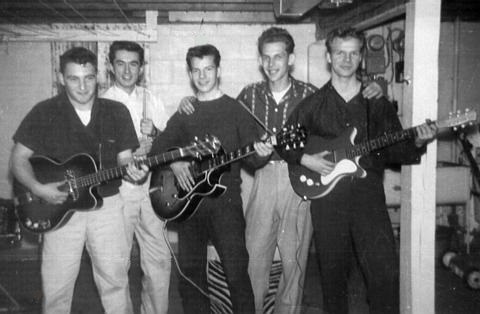
Besides making new memories, I am sure that Bobby’s mind wandered to his more than five decades in music. He was a 15-year old in Fargo, North Dakota desperate to join his brother Bill and Bill’s pals, Jim Stillman and Bob Korum, during their jam sessions: “I played saxophone in the high school band … but I wanted to rock out.” Bill eventually relented and Bobby could tag along with his brother, “if I would promise to keep quiet”. I had a good laugh recently when I was looking through some old newspaper articles detailing Bobby’s early years in music. One paper recounted a version of this story, with the more colourful description that Bobby was allowed “to sit in during practice sessions with the proviso that he would ‘shut up’”. Underneath a beaming photo of Bobby is the caption, “Bobby Vee … He didn’t ‘Shut Up’ …” (Cedar Rapids Gazette, August 7, 1966). I’m glad he didn’t. Besides enthusiasm and $30 Harmony guitar, Bobby had an ace up his sleeve: he knew the lyrics to the songs the guys played.
In an often-told story, and one Bobby has been asked to recount many, many times, it was the deaths of Buddy Holly, Richie Valens, The Big Bopper, and pilot Roger Peterson en route to Moorhead, Minnesota via Fargo that led to Bobby’s debut. The young men on that flight weren’t much older than Bobby, Bill, Bob, and Dick Dunkirk (replacing Jim Stillman). There was a call for local talent to fill in at the Moorhead Armory show that the three musicians would never attend. As recounted at The History of Rock ‘n’ Roll website, “The boys [Bobby and the band] had three hours to come up with an act. They knew six songs maybe. After the quick rehearsal, on the way to the armory, they stopped at J.C. Penney’s and bought black peg pants with tight cuffs and sleeveless sweaters accented with angora ties”. It was at the event, Bobby recalled a few years later in the liner notes to his 1963 LP I Remember Buddy Holly, “We hadn’t even named the group up to that time, so we gave ourselves a name on the spot, calling ourselves ‘The Shadows’”. Until then, in Bobby’s words, “I was the lead singer … of Fargo’s first nameless garage band”. While the show that night started Bobby’s career, had he not performed that night, I can’t imagine that Bobby Vee wouldn’t have been ‘discovered’ elsewhere. No matter what, he would have become a star.
Shows around the traps, their first paying gig on a makeshift stage, which half-way through the show came apart, were a prelude to the worldwide travel Bobby would be doing within a couple of years. In the liner notes to The Essential and Collectable Bobby Vee (1998), Bobby begins his story with, “The date was June 1, 1959 and I was barely 16 when I recorded my first record, ‘Suzie Baby’, at the Kaybank Studio in Minneapolis, MN. By September it was #1 in the upper Midwest and I signed my first recording contract with Liberty Records”. Maury Dean, in his book Rock ‘n’ Roll Gold Rush, described “Suzie Baby” as “not just a good record – it is a great record”. When I listen to that record some 55 years after it was recorded, Bobby and his band absolutely kill me.
After “Suzie Baby”, a hit with B-side “Devil or Angel” in 1960, after a couple of misses, led to Bobby’s initial five-year contract with Liberty. God bless the B-sides! At Liberty, it was with company founder Si Waronker’s “love of music and steadfast desire to create quality product he placed 21 year old Snuff Garrett in charge of A&R production and with Snuff’s seemingly endless string of hit records Si’s dream became a reality. Liberty Records became one of the most successful record companies of the sixties and very happily, it became my musical home for over fifteen years” (The Essential and Collectable Bobby Vee liner notes). I am familiar with Si Waronker’s work through my friend, Donna Loren, who was married to Si’s son, Warner Bros. Records president Lenny Waronker. In fact, Donna and Lenny’s son Joey played drums on Bob Evans’ Familiar Stranger.
In his songs, Bobby often dealt with lost love, two timing girls, and even best pals who end up with his girl. In one song, Bobby gets “A Letter from Betty”. Sounds innocuous? He opens that letter: “She said, dear, Bobby/Just a line to say hello/We’ve been such good friends/You should be the first to know/I fell in love/My dreams have all come true/And, Bobby, he’s so much like you”. Like what?! The listener often wonders how someone so good can put up with all of this. When Bobby sings the first few lines to “Punish Her” and comes to “Punish her, kill her”, you’re likely to spit out your soda from the Malt shop. Until, of course, he finishes this advice to punish and kill her “with kindness”. That’s our Bobby!
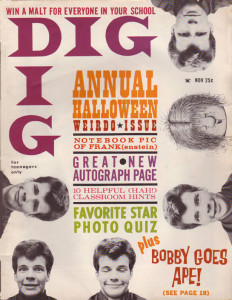
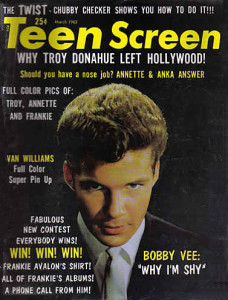
While Bobby may seem a pushover in some of the songs – he even refers to himself as being like a “Rubber Ball” – I like to think he knows his worth. Through it all, Bobby can only wish these girls well and hope that if they only realise what fools they’ve been, they’ll return. “Run to Him”, a song in this vein by Gerry Goffin and Jack Keller, reached #2 on the Billboard chart. I think the public kind of liked it when Bobby misbehaved just a little to give some back to the Suzies, Barbaras, Bettys, and Robins. On his #1 “Take Good Care of My Baby” by Gerry Goffin and Carole King, Bobby’s lost the girl because he was untrue; but he hopes he’ll win her back. And on his #3 “The Night Has a Thousand Eyes” (Weisman-Wayne-Garrett), where he suspects his girl of being a “run-around lover” he mischievously eludes to the fact that two could play at that game. Of course, he wouldn’t, but you know…
Some of my other Bobby favourites are “More Than I Can Say” by Sonny Curtis and Jerry Allison, “It Might as Well Rain Until September” again by Goffin and King (where Bobby has the girl, but she is away), and the later beautiful “No Obligations” by K. Walker. I say later, but Bobby would have only been around 26!
What to make of this good guy persona? It seems to have been pretty close to reality. In articles from the ‘60s, Bobby was described as “handsome, shy, young” (The Emmetsburg Democrat, July 13, 1961, p. 3) and “soft-spoken” (The Lima News, August 8, 1963, p. 17). In an article in the Clearfield Progress (July 28, 1964, p. 9), he is described in this way: “Now he is the hottest name on Liberty Records, has made millions of fans among teenagers and adults, appeared on all the top television shows and is weighing a half-dozen more motion picture offers. Through it all, Bobby Vee retains the same shy, soft-spoken qualities that made him a favorite among friends in Fargo, N. D., where he was born on April 30, 1943”. More recent profiles describe him as “self-deprecating” and “a great guy”.
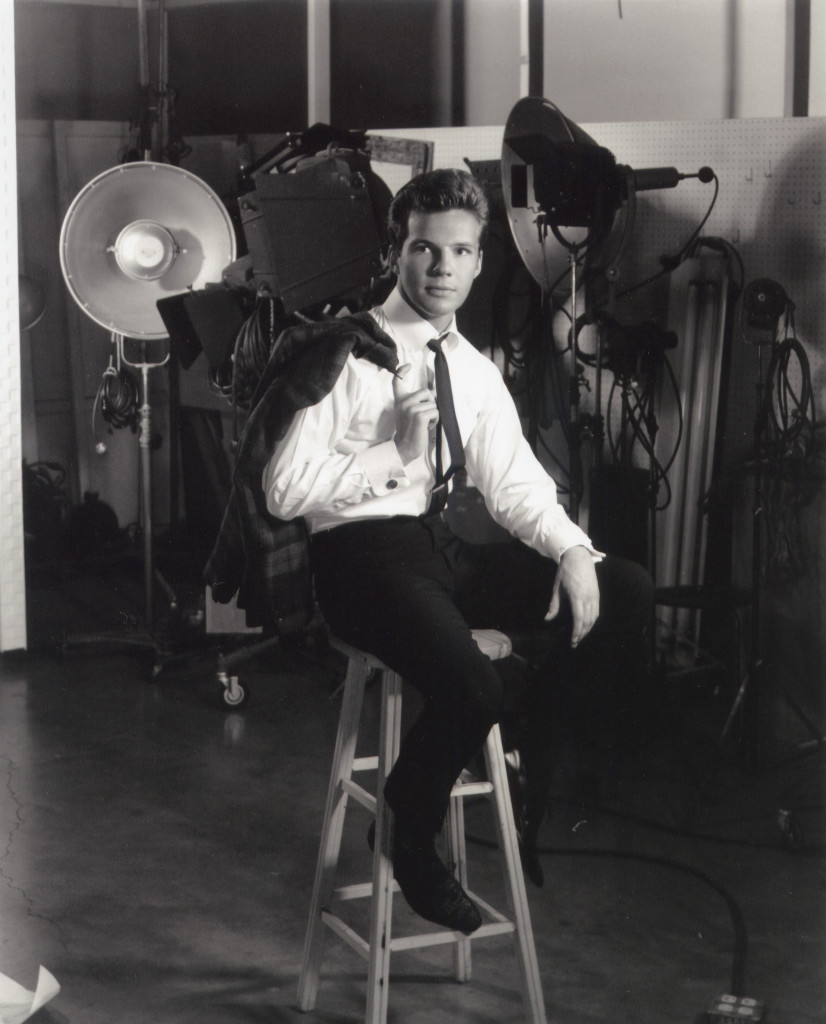
Wait for another Bob. Bob Dylan wrote in his autobiography Chronicles (2004) how, as a young Elston Gunnn, he met Bobby: “His band was called The Shadows and I had hitchhiked out there and talked my way into joining his group as a piano player on some of his local gigs, one in the basement of a church. I played a few shows with him, but he really didn’t need a piano player and, besides, it was hard finding a piano that was in tune in the halls that he played”. Dylan felt that “Bobby Vee and me had a lot in common, even though our paths would take such different directions”. For Bob – er, Elston – Bobby had “a metallic, edgy tone to his voice and it was as musical as a silver bell”. Dylan goes on to describe how at the time of “Take Good Care of My Baby” in 1961, he wanted to see Bobby again: “He was on the top of the heap now. It seemed like so much had happened to him in such a short time. Bobby came out to see me; was as down-to-earth as ever, was wearing a shiny silk suit and narrow tie, seemed genuinely glad to see me, didn’t even act surprised”.
Bob Dylan never forgot his “old friend and fellow performer”. At a 2013 show, Dylan introduced a song he was to perform with a tribute to Bobby. “I’ve been on the stage with most of those people” explained Dylan referencing the likes of Madonna and Mick Jagger, “But the most meaningful person I’ve ever been on the stage with, was a man who is here tonight, who used to sing a song called “Suzie Baby”. I want to say that Bobby Vee is actually here tonight. Maybe you can show your appreciation with just a round of applause. So, we’re gonna try to do this song, like I’ve done it with him before once or twice”. And with that, Suzie had another shot of life.
In real life, Bobby may have been the teen idol, but perhaps the girls were indeed hard to find. Listen to the song “The Idol” by Bobby’s regular songwriters, Gerry Goffin and Carole King, and you get the idea. In an article for a section of the Van Nuys News called “Teen Talk” (September 30, 1960, p. 8-B), it was written that “Bobby has been so active this past year that he has had little time to relax and enjoy things other teenagers of his age usually do”. This included making new friends or meeting girls. What did Bobby look for in a friend or girl? The article explained: “‘The first thing I look for in a friend,’ says Bobby, ‘is a kind of sincerity that you can’t fake’. As for girls, Bobby admits to a wholesome and typical 17-year-old enthusiasm but also reveals he likes his dates ‘quiet types, not gigglers or gabbers. I also prefer a girl with a sense of humor’”. In the liner notes for The Adobe Sessions describing “Love Must Have Passed Me By”, originally written by Bobby in the ’50s and first recorded just after “Suzie Baby” (but not released at the time), it is described how Bobby was asked by singer-songwriter Rosie Flores “How does a 15 year old write such lyrics?” He replied, “I just wanted a girlfriend so damn bad!” Those 15-year old-feelings held up well enough for Rosie to want to sing that song on her own 2012 album with Bobby providing harmonies (and the collaboration made its way onto Bobby’s Adobe Sessions as well).
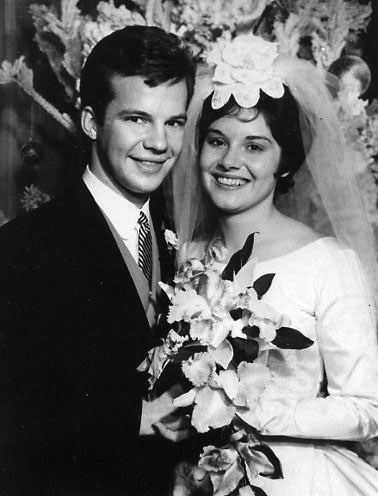
However, the guy who wanted that girlfriend “so darn bad” (actually Bobby said “damn”, but the slightly more wholesome “darn” just seems to fit better when imagining a 15-year-old Bobby) would meet the love of his life soon enough, Karen Bergen. The two were engaged July 1, 1963, and married December 28th of that year. Together they raised four children: Jeff, Tommy, Robby, and Jenny. Karen reflected on their marriage in 2014: “I think we’ve both led our own lives and led life together … We supported each other in what we were doing. We both had careers, and we both enjoyed the other’s career. He participated in mine sometimes, and I participated in his. Raising the kids together and having common goals and common values. And we had a lot of fun”. In recent years, Karen had significant health problems, including undergoing a lung transplant. True to the Vellines, they were open with fans, and the children turned outward continuing works started by their parents to benefit the arts and music programs. In looking at photos posted on Bobby’s website and elsewhere of Karen with her children and grandchildren, I am reminded of the phrase writer Margaret Talbot told her readers was one of her mother’s. Like Margaret’s mother, you can tell that Karen’s family “made her heart sing”. Bobby and Karen Velline remained together until Karen’s passing on August 3, 2015.
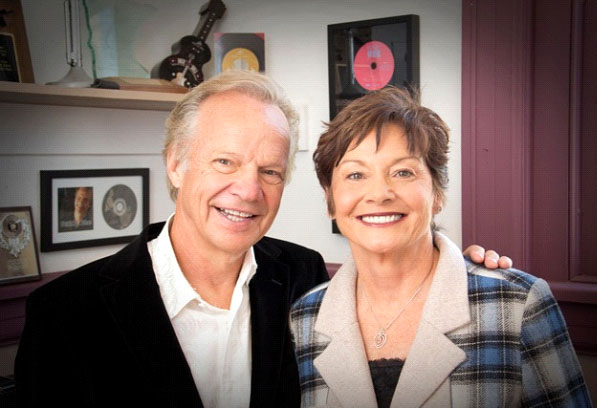
What the Vellines have left for us, besides of course a lifetime of music that continues with the next generation and beyond, is as Bobby and family wrote in the liner notes of The Adobe Sessions “our little family scrapbook”. After recording in Tucson and realising they had enough material, this album was born. Bobby provides the vocals and, of course, acoustic guitar, and the Vellines and friends perform the tracks, many of them written by the family.
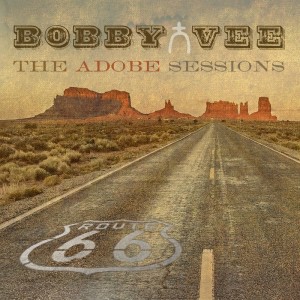
It is an album about new love, long-lasting love, memories. There are songs that have meant much to the Vee family. Some link with Bobby’s own past such as “I Like It Like That” by Smokey Robinson and Mary Taplin that Bobby first recorded in 1968. There is “In My Baby’s Eyes,” by – you guessed it – Goffin and King that Bobby released his original version of long, long ago (another B-side!).
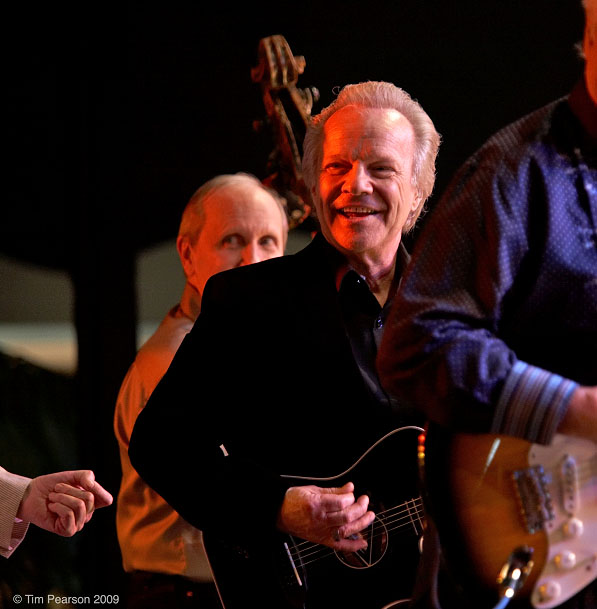
Others Bobby has performed live for years, such as “Save the Last Dance for Me” or “The Man in Me” by Dylan. “The Man in Me” and two songs by Hank Williams that Bobby has known, loved, and performed for so long are fresh and different here. While the essential truths of these and other songs remain the same, in Bobby’s hands their meanings change and deepen with time. There are Velline family favourites, “I’m Just a Country Boy” by Fred Hellerman and Marshall Barer and “Walls” by Gordon Lightfoot, the latter of which was a family road trip favourite. There is Daniel Lanois’ “The Maker” with monks of Saint John’s Abbey Schola providing a Gregorian chant. As Bobby writes in the liner notes, “Unforgettable”. And with his vocals – you still kill me, Bobby.
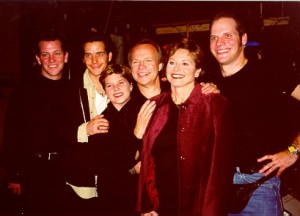
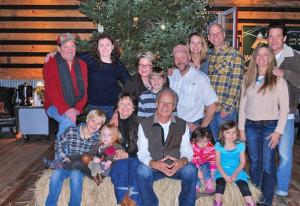
It is probably a false dichotomy to separate songs on the album into those Bobby has performed/recorded before, and those that have been part of the Velline family’s life. After all, with the Vellines music has been a way of business and a way of life. Robby Vee and his mom, Karen, wrote one of my favourites on the album, “Father to a Son”. As they write and Bobby performs, “It’s who you love and how you love in all the special ways/That’s all you take with you and the rest fades away”.
In preparing to write this, I read album notes, watched old Scopitone films on YouTube (music videos of the ‘60s) that really are a trip, and looked at photos. Some of my favourites were of a young Bobby in Rome, the newlyweds, the family, and of course Bobby on stage over time. I thought about memory. Jeff Vee wrote in his Care Advantage article about the need to always make new memories, “The road ahead is indeed murky. We think about it, but it does not rule the day. Life is about right now—trite, perhaps, but true. And we are all better people for this. We have the scrapbooks to prove it!” Another writer, Kate Swaffer, came to mind. Kate Swaffer is a fantastic writer and scholar. I actually was one of her lecturers when I was a PhD student. She was diagnosed with younger onset dementia. She wrote, “When my mind is not bursting with memories, which it is more prone to these days, I try not to neglect it, or to ignore it, but to fill my being, my life, my belly, with laughter, love and tenderness, and friendships, and most of all with caring for others, so that it is possible to see I am not alone, and that there are others also experiencing their own grief and pain, and loss and sadness… none of us are really alone, even though we can feel that way some days”.
While Bobby Vee has retired, and we the public may see less of him, he is still here. Thank you, Bobby, and the family Vee. We love you more than we can say.
The Adobe Sessions is available at Amazon.com, CD Baby, iTunes, and your usual online or bricks-and-mortar stores. Likewise, Familiar Stranger by Bob Evans is available online or in-store, including through iTunes.
Bobby’s official website is here, and visiting the Bobby Vee Facebook Fan Club is a must.
With thanks to Jeff Vee and the entire Velline family.
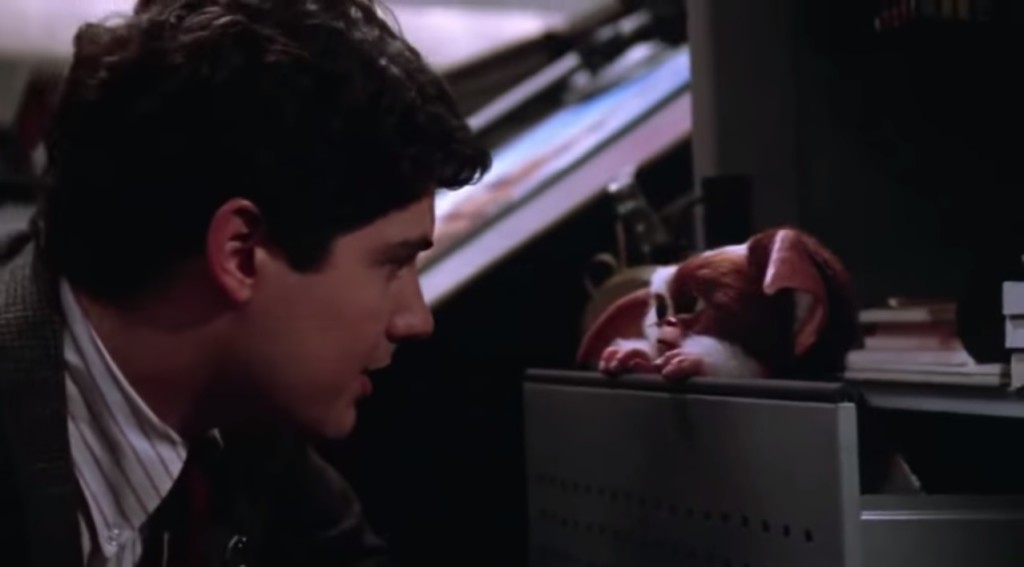
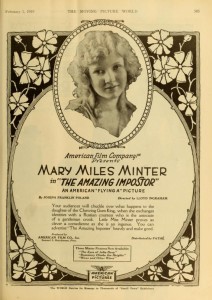

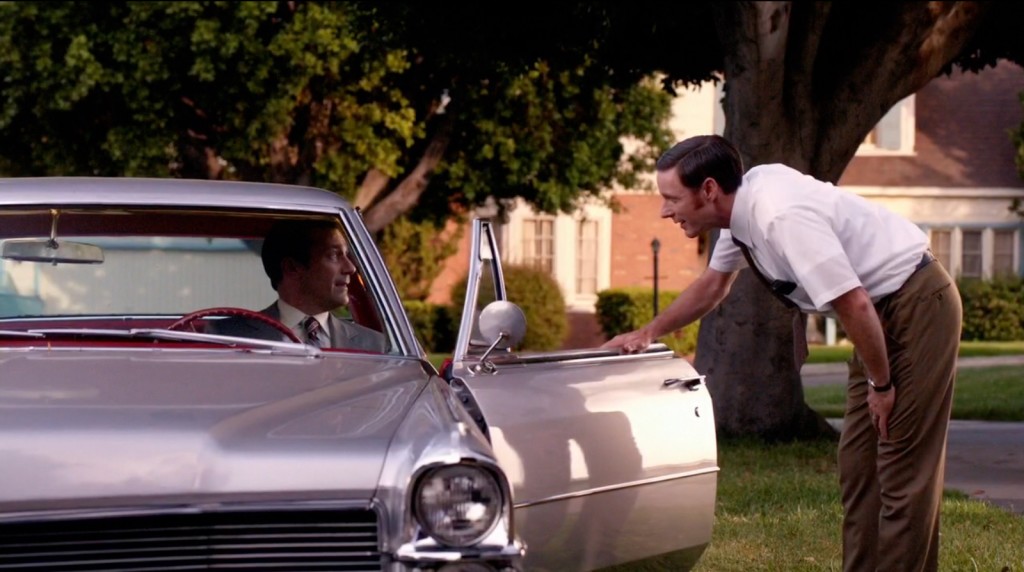
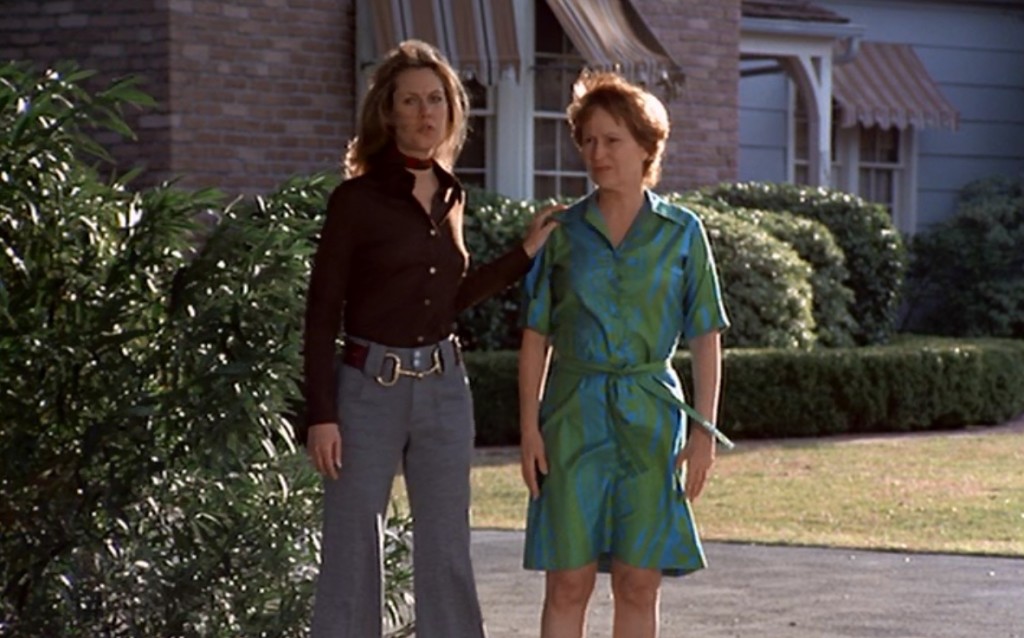
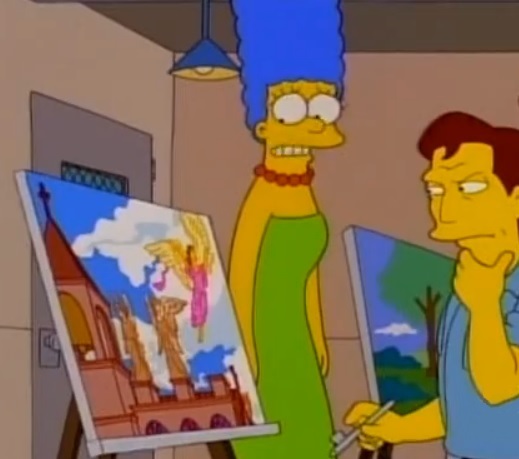
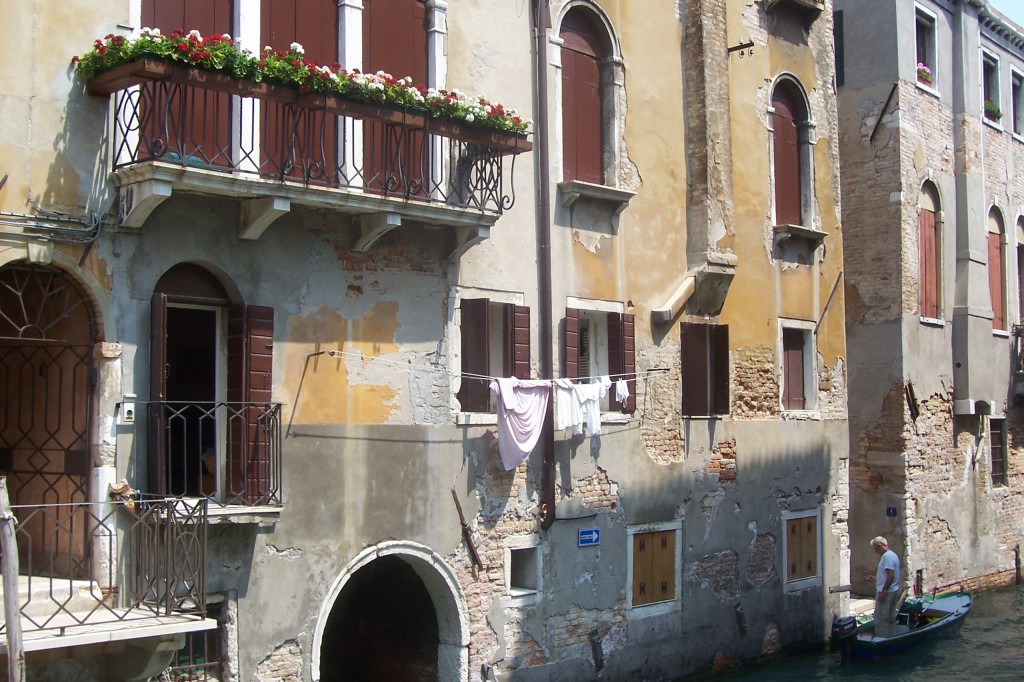
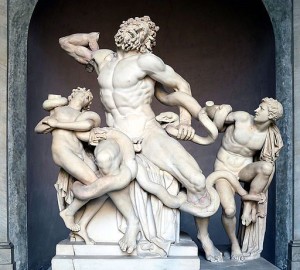
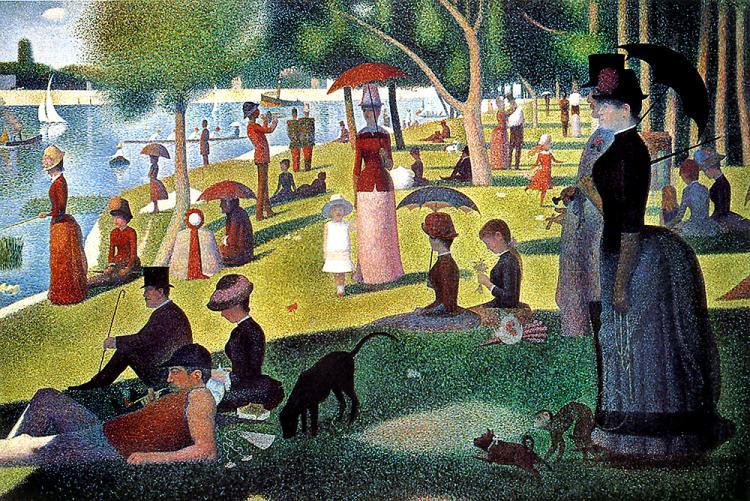
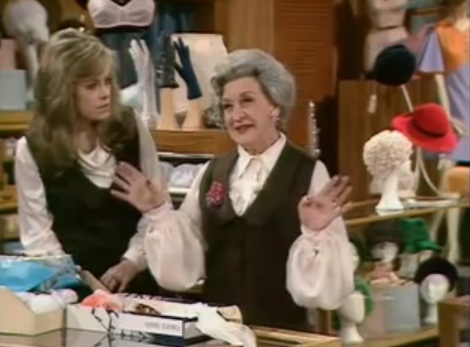
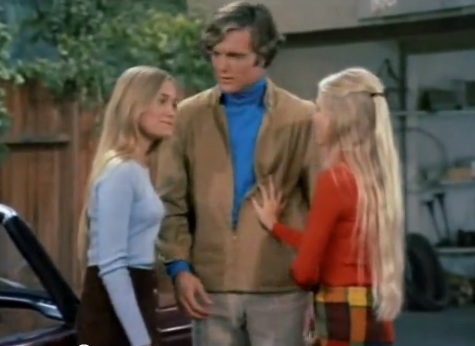
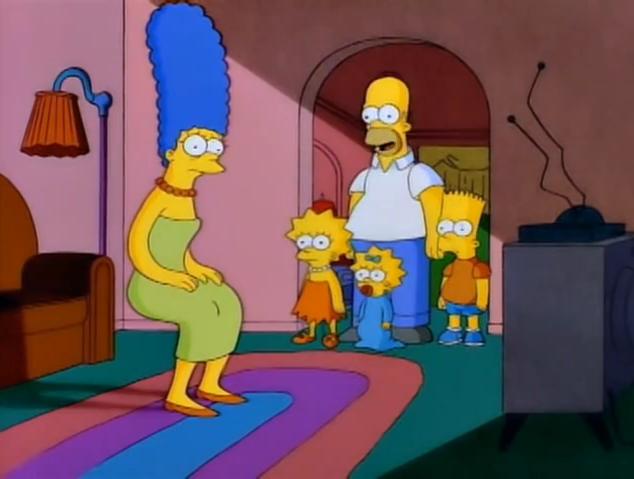
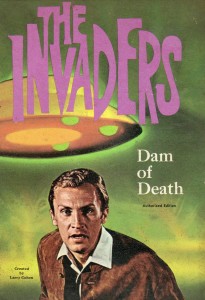
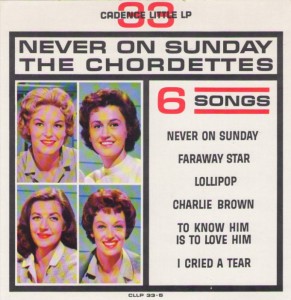
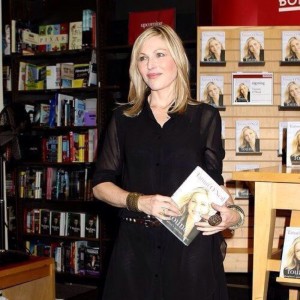

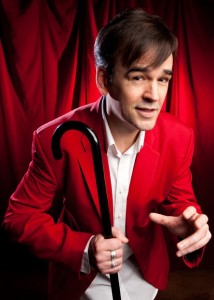








 The holidays can be a stressful time. I’m usually pretty on top of Christmas shopping, but this year I wasn’t – and it seemed a lot of people weren’t either – really in the festive spirit. We were also away in Sydney mid-December and some Christmas shopping was done more or less at the last minute.
The holidays can be a stressful time. I’m usually pretty on top of Christmas shopping, but this year I wasn’t – and it seemed a lot of people weren’t either – really in the festive spirit. We were also away in Sydney mid-December and some Christmas shopping was done more or less at the last minute. I don’t tend to take a computer with me when travelling for business. My most pressing task when I’m out of the office – unless working to a tight deadline for a project – is keeping on top of emails. This can usually be accomplished on an iPhone. However, the main reason I don’t travel with a computer or even an iPad (most of the time) is one to which a lot of people can probably relate. The idea of going through airport security with both a carry-on and a computer bag, and having to remove the computer to be x-rayed while fumbling around with getting things out of my pockets fills me with dread.
I don’t tend to take a computer with me when travelling for business. My most pressing task when I’m out of the office – unless working to a tight deadline for a project – is keeping on top of emails. This can usually be accomplished on an iPhone. However, the main reason I don’t travel with a computer or even an iPad (most of the time) is one to which a lot of people can probably relate. The idea of going through airport security with both a carry-on and a computer bag, and having to remove the computer to be x-rayed while fumbling around with getting things out of my pockets fills me with dread.
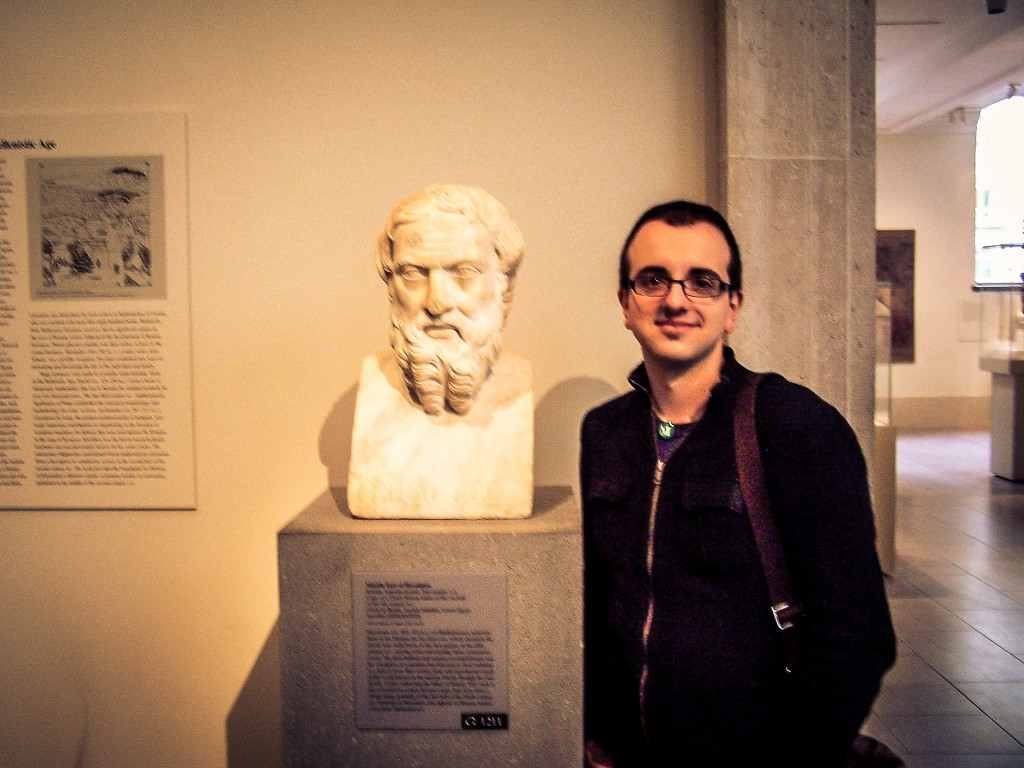
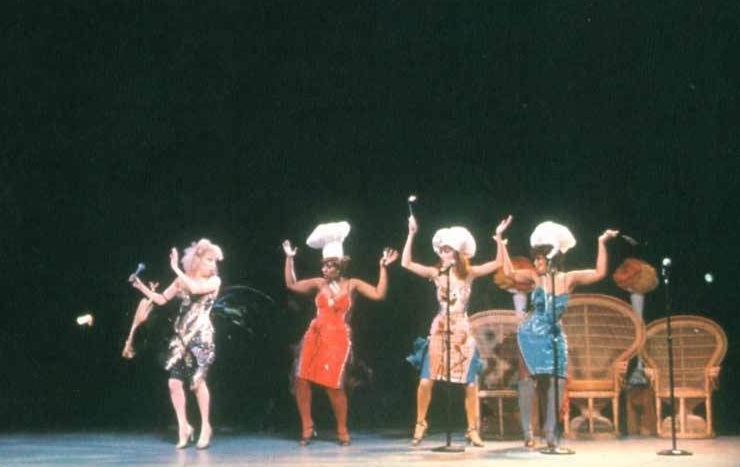
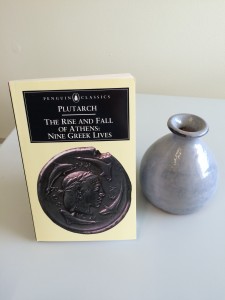


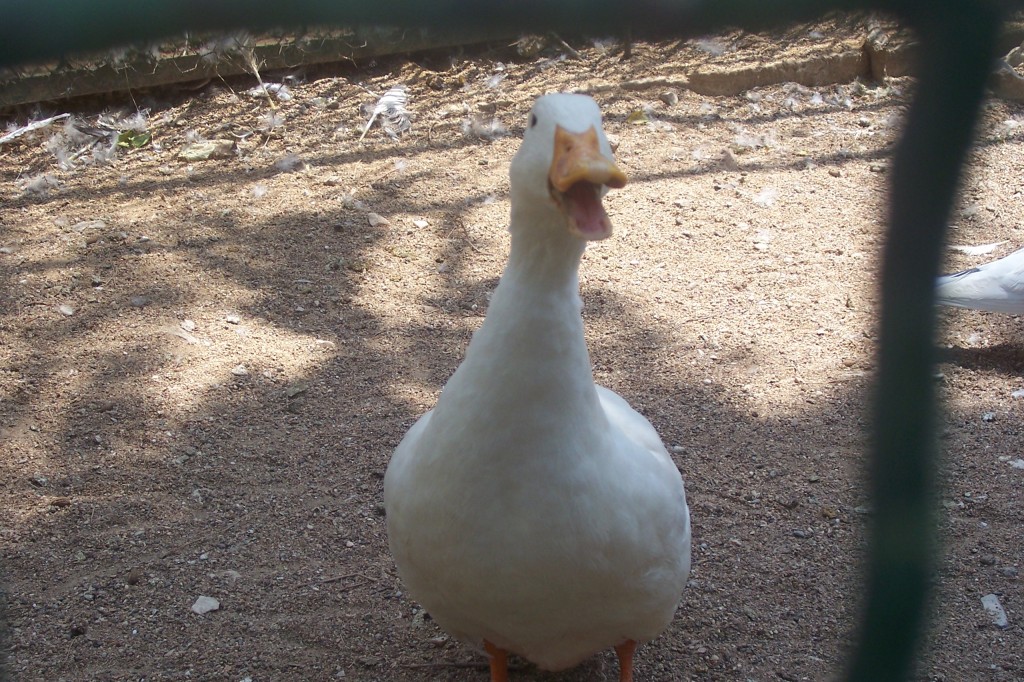




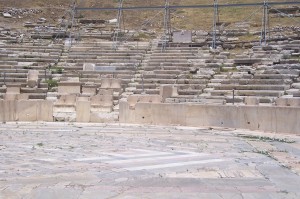

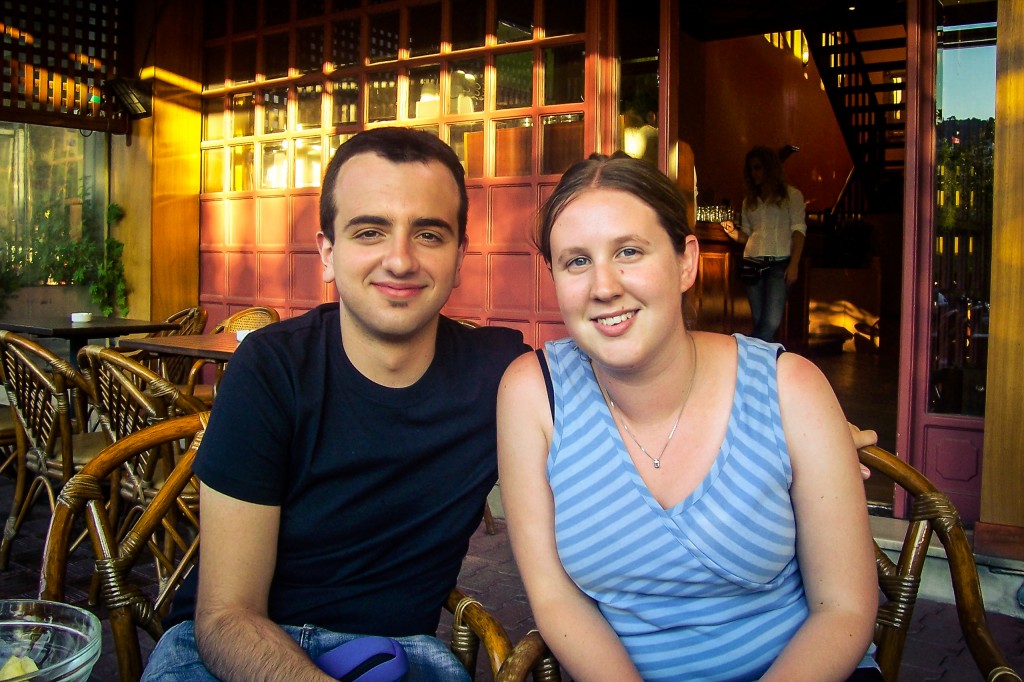

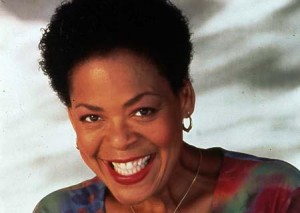
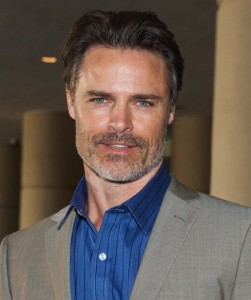
 If I could be you and you could be me for just one hour
If I could be you and you could be me for just one hour
